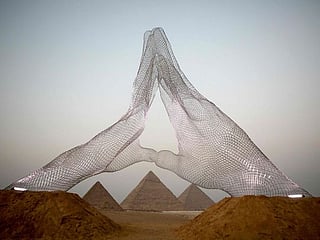COP26: The future starts now
UN climate change summit is Glasgow is a critical moment for our Earth

Some 25,000 officials, technocrats, environmental scientists and leaders from around the world are gathering now in Glasgow for COP26, the United Nations summit on climate change — our last best chance to reduce the temperature of this planet and reverse the terrifying effects of a warm Earth.
Make no mistake: This is a critical juncture for our future and for that of generations to come. Yes, the stakes are that high. Should the three-week summit fail to reach a consensus on climate change and strike a meaningful deal that will halt or greatly slow the warming of our planet, future generations will look to Glasgow as the moment where we slipped off the precipice.
Six years ago, the vast majority of nations signed on to a plan to reduce the planet’s temperature by 1.5 degrees Celsius. Part and parcel of that plan was a commitment from developed nations to contribute $100 billion to a fund to less developing nations turn to alternative energy sources that would no generate greenhouse gases and increase their carbon footprints.
That fund has been undersubscribed by half — so too a commitment from nations to a carbon neutral future. Yes, some have committed to do so by 2030, others by 2050, more by 2060. That is kicking the can of today’s problems down the road for others to deal with. Simply put, now is the time for climate action. And now is the time for change.
The worsening effects on our warming planet are seen with more floods, more severe weather events, stronger hurricanes and cyclones, hotter summers, colder winters, longer droughts, fewer fish, less biodiversity, more deaths and an environment that has been scarred by our addiction to carbon-based fuel sources and unchecked industrialisation at the expense of the fauna and flora with whom we share our home.
The outcome of COP26 will determine whether it is us — yes, we are all responsible by our personal choices — who decided that this planet was as disposable as the litter we discard, or whether it is a jewel that we hold in stewardship for this and future generations.
Will our grandchildren ask us what happened to elephants and polar bears? Will we have to explain that we didn’t do enough to make our air clean when we had a chance? And how do we say that yes, we were selfish and more important now than others who went before or come after; that we did what we liked and whistled as the Earth was warmed as never before.







